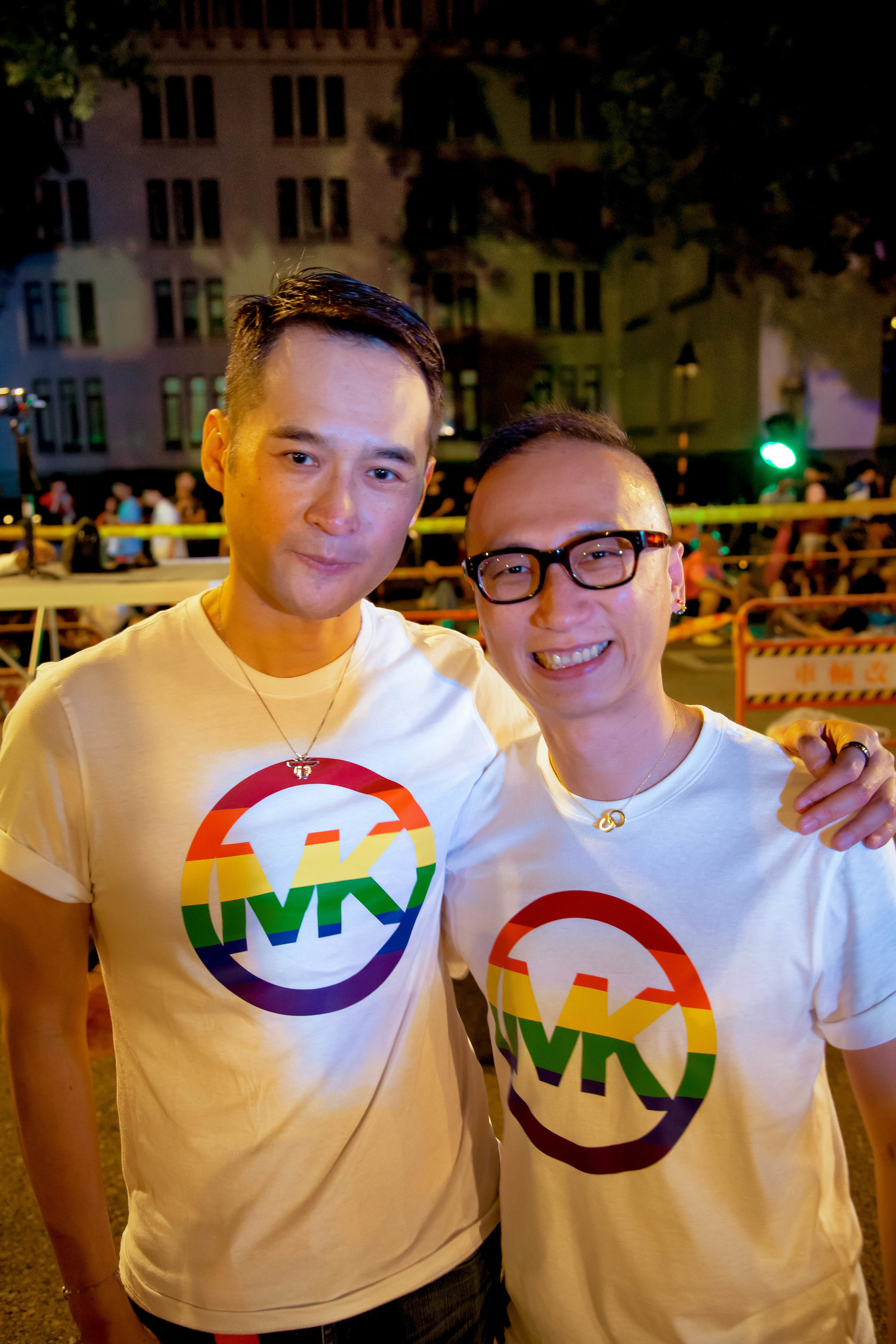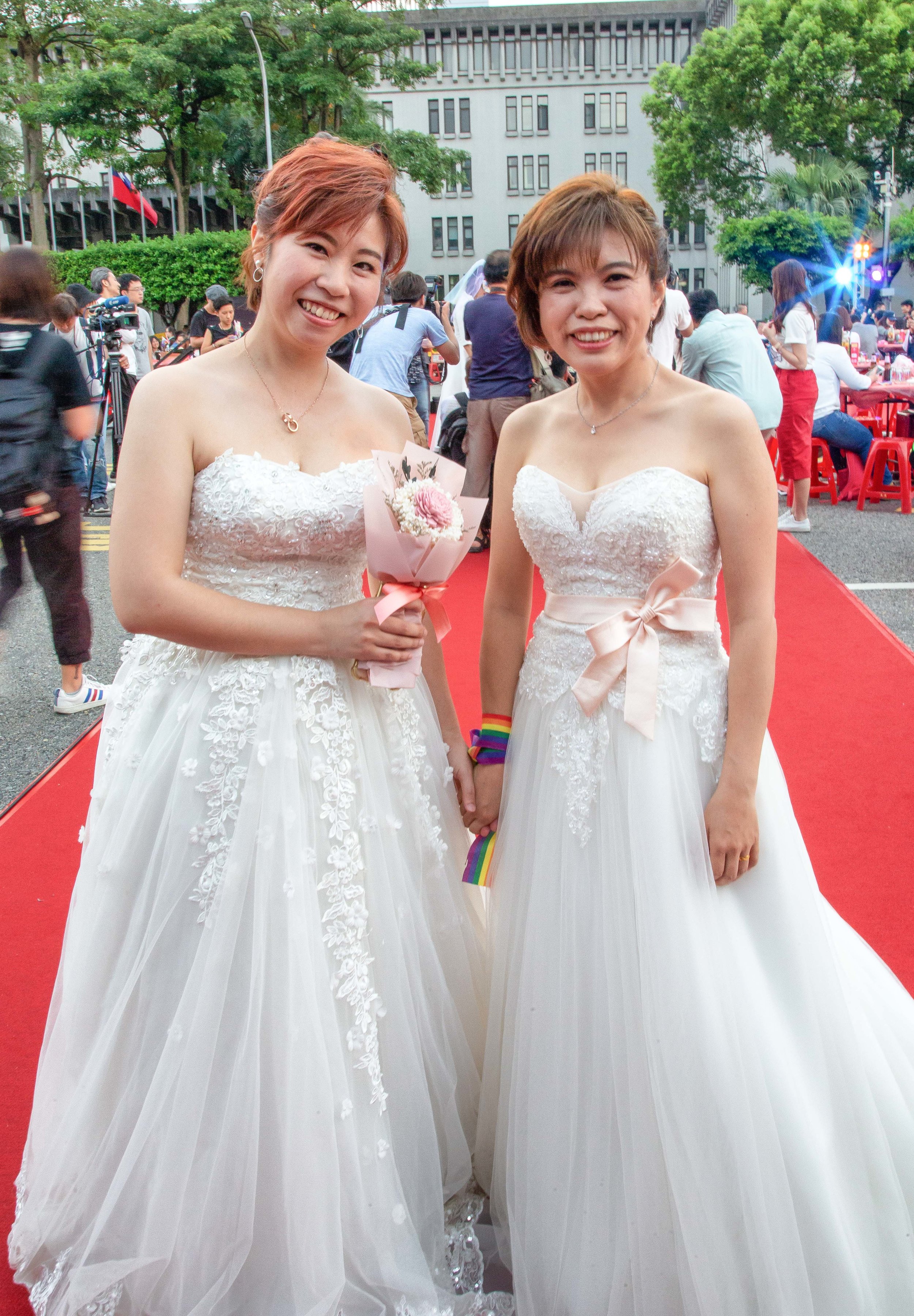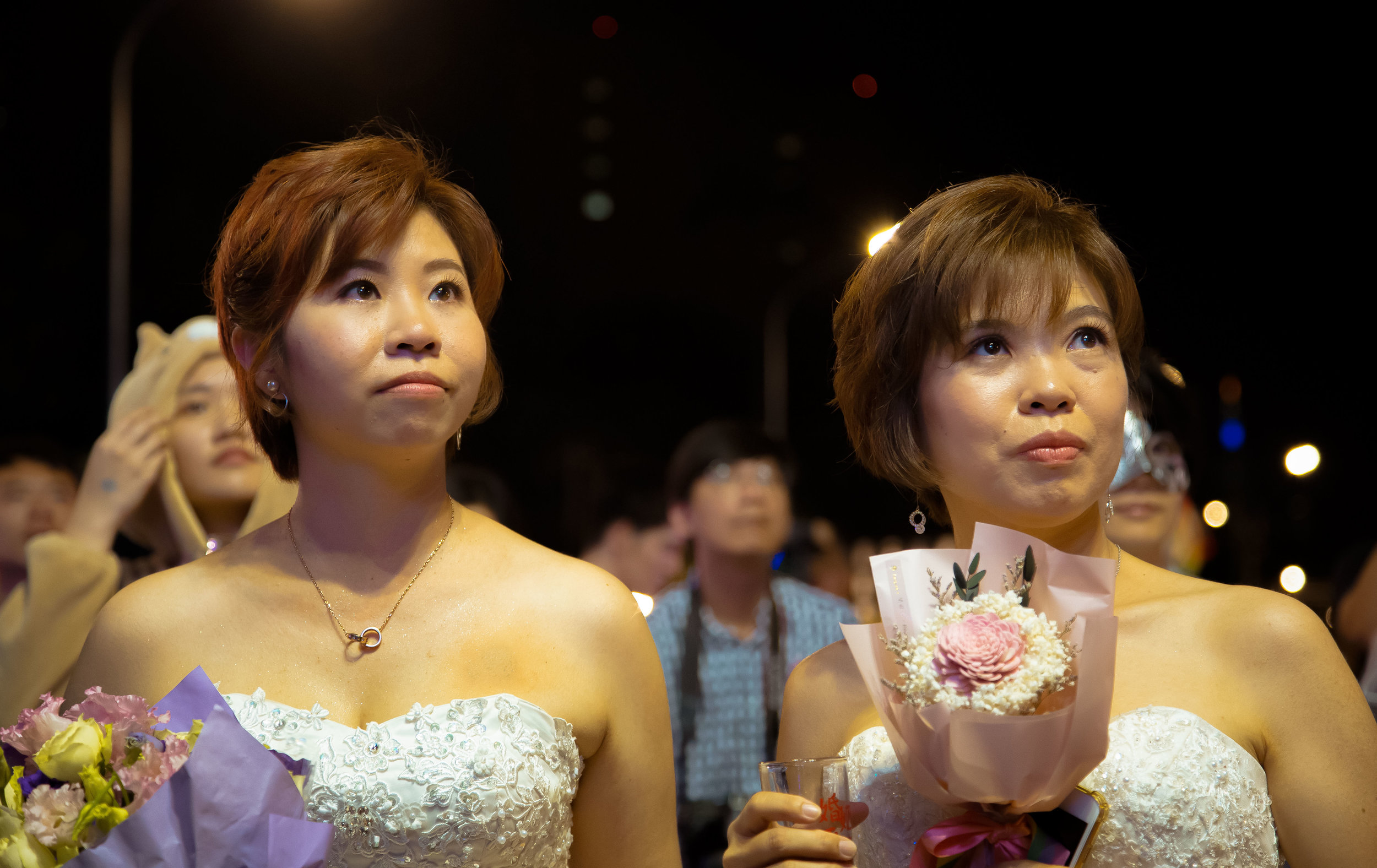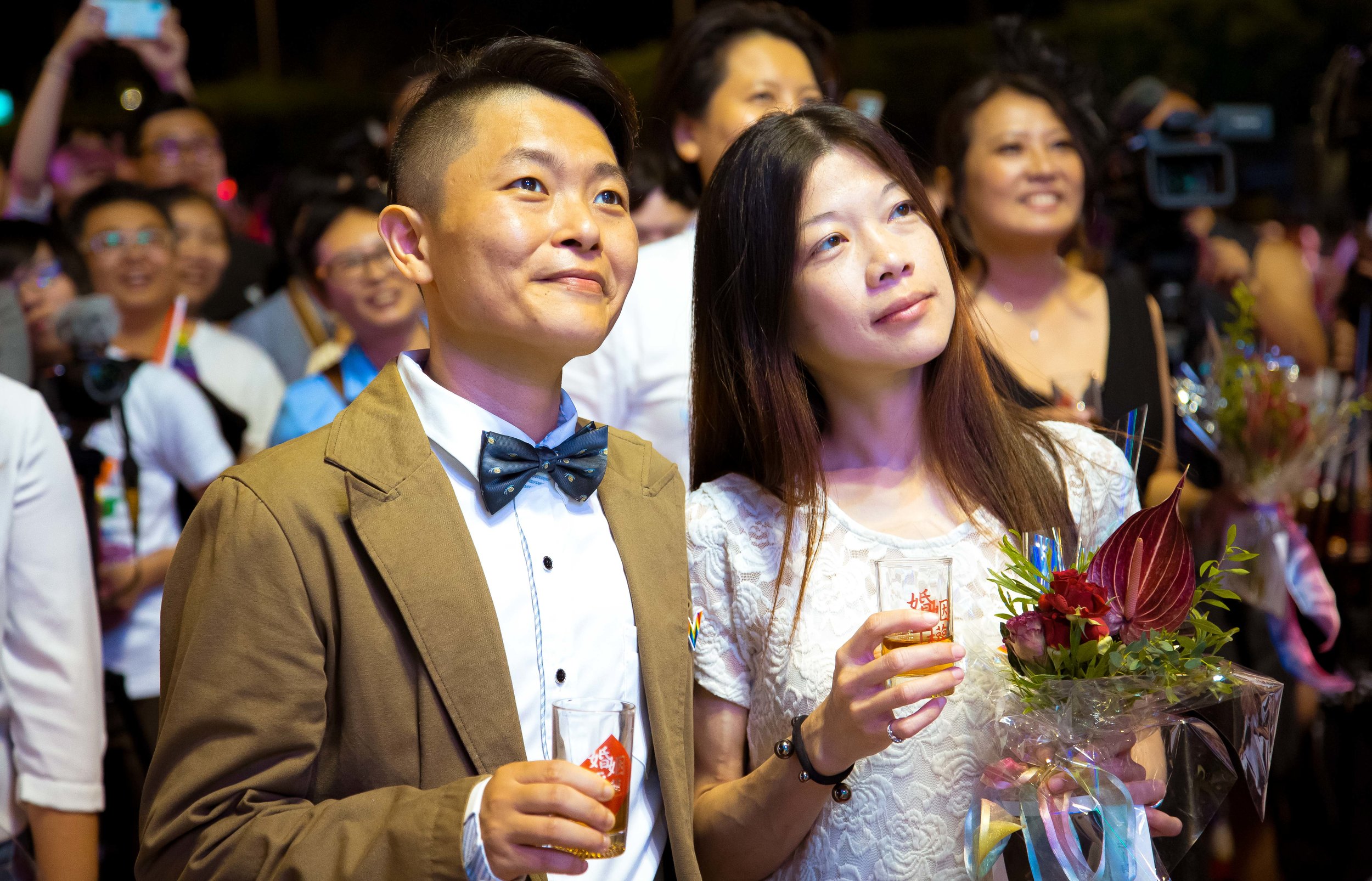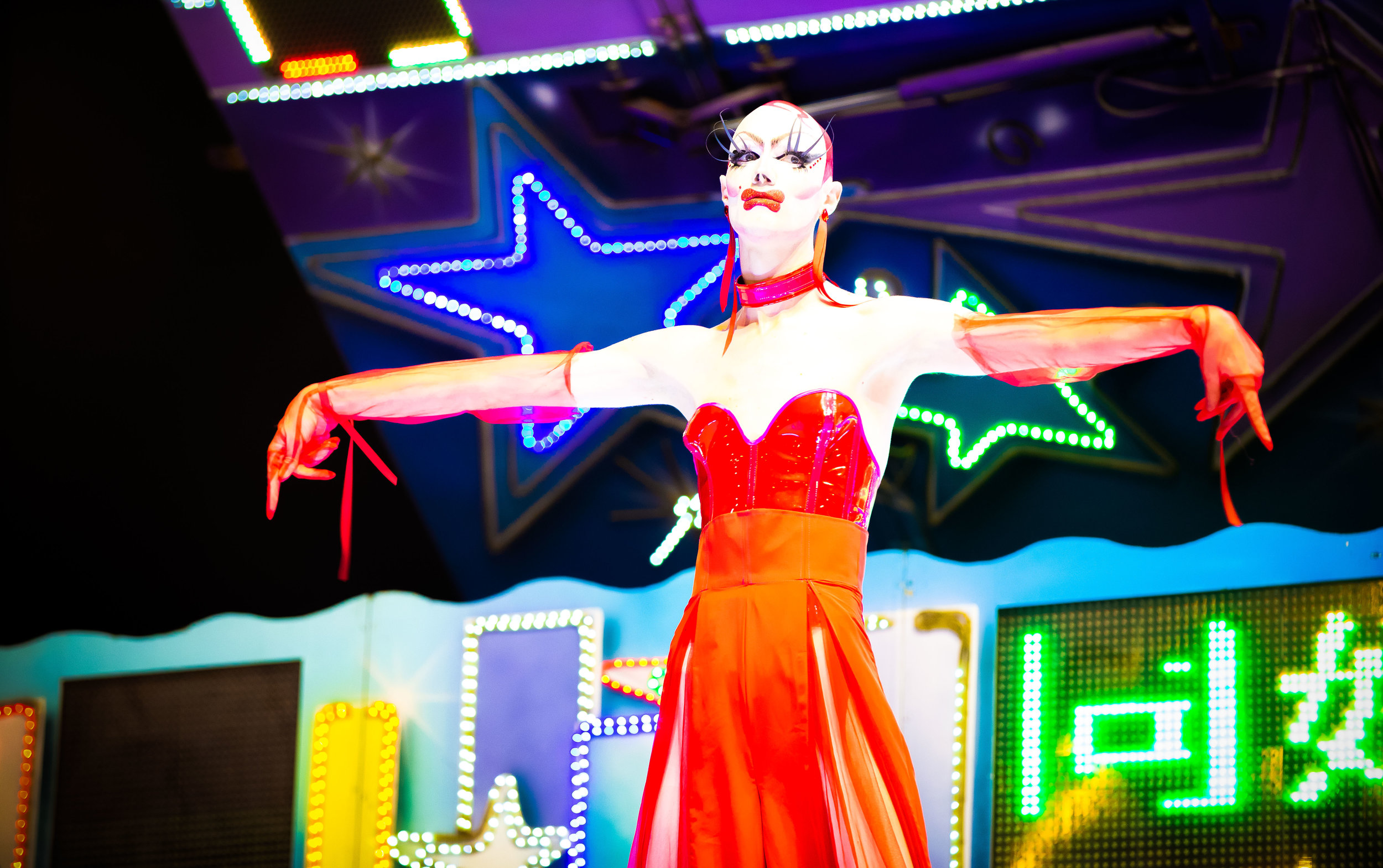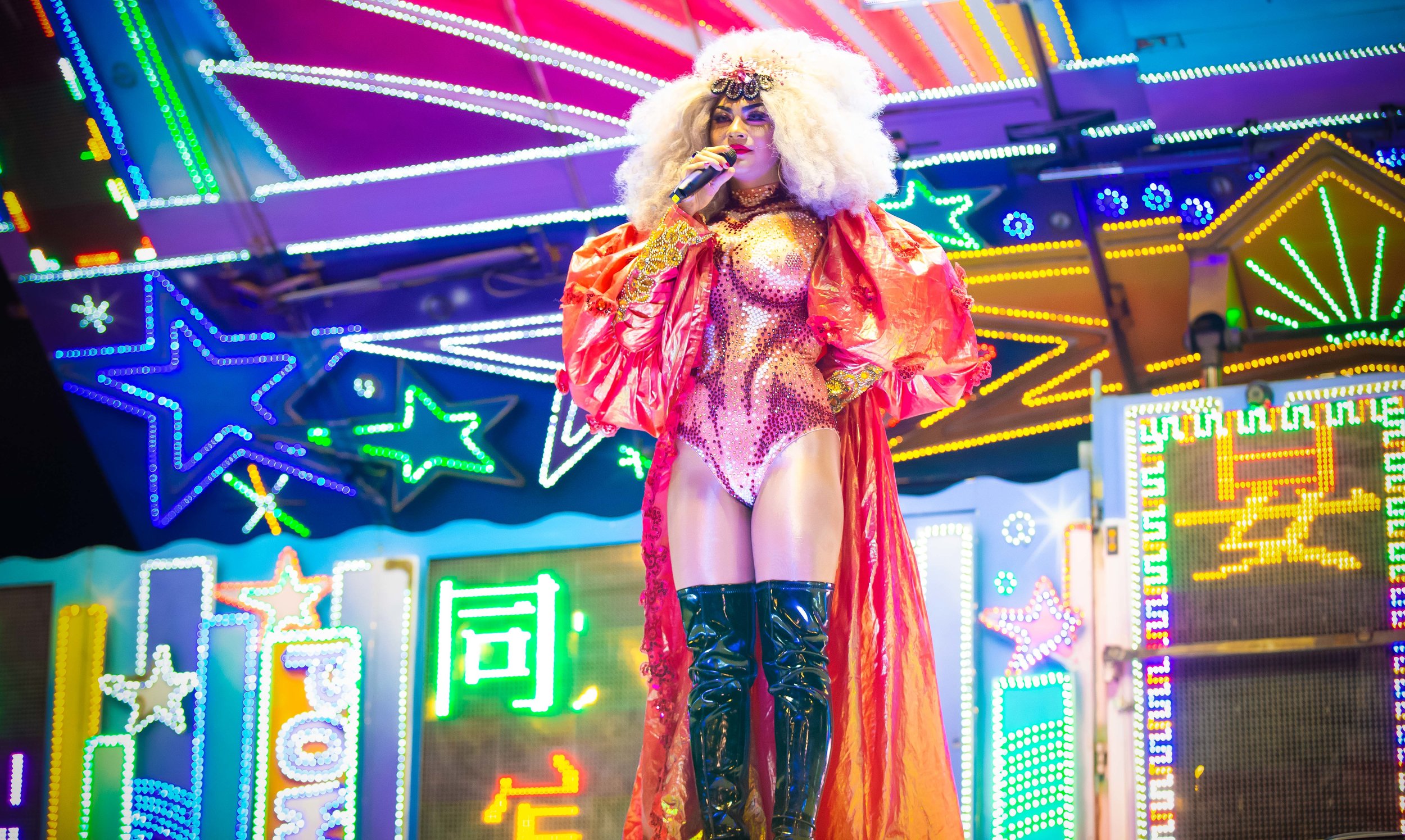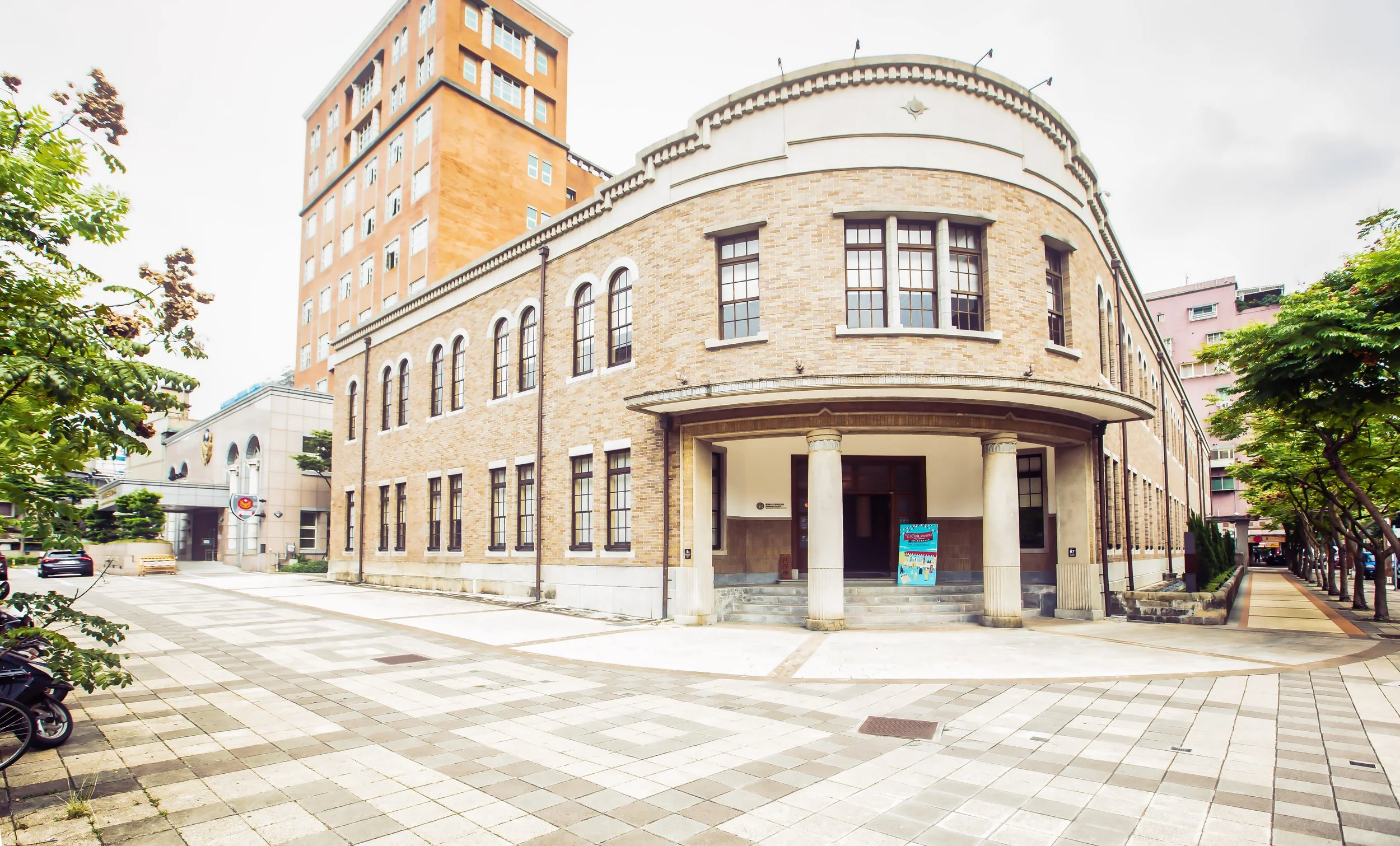On May 24th, 2017, the Constitutional Court (司法院), Taiwan’s version of the Supreme Court, ruled that the right to equality and freedom of marriage under the constitution of the Republic of China must also be guaranteed to same-sex couples.
The ruling, “Judicial Yuan Interpretation No 748” (釋字第748號) became a hot topic of public debate throughout the country and would result in a couple of referendums opposing changes to the definition of marriage. The decision made by the High Court however wouldn’t be reversed, so the government had two years to come up with a solution that would bring marriage laws in compliance with the ruling.
Instead of being proactive, the government procrastinated and pushed the topic aside for as long as it could. The ruling of the Constitutional Court however demanded that action be taken before the deadline of May 24th, 2019 when registration of same-sex marriages would automatically come into effect.
In February 2019, with time running out and pressure from both sides mounting, the cabinet introduced a draft bill to the Legislative Yuan (立法院) titled the “Enforcement Act of the Judicial Yuan Interpretation No. 748” (司法院釋字748號解釋施行法) for consideration. Likewise, opposing parties also introduced their own draft bills to be debated in the legislature.
The draft bill introduced by the cabinet granted same-sex couples all the rights available to heterosexual couples under the Civil Code, with the exception of certain adoption rights and the inability for certain transnational couples (those couples where one partner is from a country that doesn’t recognize same-sex marriage) to wed in Taiwan.
The government used its majority in the legislature to push through their bill and with little time to spare, it was passed on May 17th, 2019 (the last possible day under the courts ruling). It was then promptly sent to President Tsai Ying-Wen who signed it and passed it into law on May 22nd.
You might be reading this and thinking that Taiwan’s road to marriage-equality was a short one, but indeed it was more than three decades in the making. Historians often look back to 1986, when the Legislature first debated marriage-equality initiated by LGBTQ rights pioneer Chi Chia-Wei (祁家威) who filed a petition with the government to revise the law.
It would take well over 10,000 days since Chi first started his crusade, but the persistence and hard work of so many dedicated people throughout the country ensured that Taiwan’s LGBTQ community would finally have the right to marry - and on May 25th, 2019, over 526 couples did just that.
This is the short version of Taiwan’s road to marriage equality. Now if you’ll indulge me for a few moments, I’d like to talk about myself.
I’ll surely lose my blogger membership card if I don’t talk about myself for a bit.
If you’ve been following any of my social media or know me in person, it should be fairly obvious that I’m a vocal ally, and always have been.
I don’t often talk about this stuff but while growing up I had to deal with a fair amount of bullying during my junior and high school years.
When I wasn’t getting shoved, tripped or hit, I’d often hear the words “faggot” shouted in my direction. These kinds of things generally have a damaging effect on a young person’s self-esteem but truthfully I always had a bit of a hard time understanding the point of it all.
Sure, I realized that the word “faggot” was meant to be demeaning, but what I could never understand was what was so wrong with being gay.
One of my best friends was gay - He did however do an exceptional job of keeping himself in the closet - despite his love of Celine Dion, Cher and Paula Abdul.
He was an inspirational person - He was kind to everyone, respectful, polite and good looking. He was the kind of kid that you’d bring home and your parents would automatically approve of. You were a better person by just hanging out with him.
There was absolutely nothing wrong with him. He wasn’t weird; He wasn’t different.
This kind of put things in perspective for me - The bullying was meant to hurt, but physical violence was really the only leverage they had over me. Calling me a fag? That didn’t hurt. I’d much rather be gay than someone “cool” in the eyes of ignorant kids like that.
Upon graduation my friend and I ended up being accepted to the same university.
This was around the same time that Canada started to take the issue of marriage-equality seriously and was also the time when my friend was finally confident enough to come out of the closet and introduced us to his first boyfriend.
As one generally does in university, I soon started attending meetings and protests and eventually became much more vocal in my support for marriage equality. I strongly felt the situation was similar to that of the Civil Rights movement in America and if I simply stood by and let my gay friends protest for their rights, then I’d be doing them a disservice. I felt it was my responsibility as an ally (and for all the other allies) to stand up and use my own voice to achieve the change that was necessary.
My involvement caused quite a few arguments with my parents who were (at the time) opposed to changes to the definition of marriage - and despite the fact that I always had I girlfriend were probably worried that I was going to come out.
During one Christmas Eve dinner we got into one of our typical political arguments while we were all sitting around the table and in frustration I angrily exclaimed that I wouldn’t marry until my friends had the same privileges that I have.
They told me I was being dramatic. It was my only leverage though. I’m the only male in my family and it would seem that ‘carrying on the name’ is my responsibility. (Children…. Eww..)
When same-sex marriage finally became the law of the land in Canada in 2005, we heard some of the typical comments that you hear when this kind of thing happens: “Its the end of society as we know it”, “I guess we’re all going to be gay now.”, “What’s next? Human’s marrying their pets?”, etc.
It was nauseating.
But these things have been said so many times in so many different countries and yet none of them have actually come true.
My parents, I’m sure like a lot of people at that time, started to discover that many of the people in their social circles (who had been living in the closet) were finally free to come out and get married. They suddenly realized that they had friends like I had and they started receiving invites to weddings.
In retrospect, I’m sure they’d rather forget about their opposition to marriage equality but I’m glad to know now that they’ve come around.
They would later sarcastically tell me that now that same-sex marriage was legal that I would have to fulfill my promise and find someone to get married to.
That scared me, so that same year I hopped on a plane and moved to Taiwan.
When I arrived here, I assumed I didn’t really have to worry that much.
Taiwan was home to Asia’s largest Pride Parade and it seemed like LGBTQ members of society here were generally much more accepted than other places in Asia.
There were also large and very active civic groups that skillfully lobbied the government, planned protests and generally did a great job of advocating for marriage-equality.
I wrongfully assumed participation wasn’t really as necessary as it was back home. I thought I could continue to be an ally but I wouldn’t have to be as active as I was before. I could just sit back and let the people of Taiwan do their thing.
I was wrong.
Fast forward to the referendums of 2018 when the government (ambiguously) allowed a couple of (really ignorant) questions regarding marriage-equality to be put to popular vote.
In the months leading up to the referendums I was unhappy with what was happening. Others felt optimistic - But I’ve seen how ignorance and discrimination rears its ugly head.
I’m of course a fan of democracy, but we’ve had recent experience with good people being fooled into voting against their own interests. (Cough.. Cough.. Brexit..)
I was also convinced that the rights of a minority should never be put to a popular vote - Human rights are something that need to be protected at the highest level of governance.
While marriage equality advocates and LGBTQ groups were doing a great job mobilizing the youth vote there were also extremely well-funded religious groups spreading messages of hate, discrimination and the damnation of society if such a thing were to come to fruition in Taiwan.
Messages like this were damning, especially in what is still considered a semi-conservative traditional Confucian society.
When the crushing results of the referendums came in, like many I was heartbroken.
The Taiwan that I loved suddenly wasn’t the same anymore.
You should be well aware by now though that even though the results of the referendums were a set-back for marriage-equality in Taiwan, this story isn’t a sad one - It does have a happy ending.
The reason for this, as I mentioned above is that the Council of Grand Justices gave the government a deadline of May 24th, 2019 to legalize same-sex marriage. The results of the referendums couldn’t change the constitutional decision made by the judges, so it was up to the government to come up with legislation that would allow same-sex couples to wed.
With the May 24th deadline quickly approaching, the various political parties came up with their own plans for legalization and it became a heated issue. Fortunately, the DPP-led legislature led by President Tsai Ying-Wen bravely used their legislative majority to push through the best possible compromise to make the dream of marriage equality a reality.
Was the final result a perfect victory?
No, not at all.
There is still a lot of work to do to realize full marriage equality rights in Taiwan, but for now, same-sex marriage is legal in Taiwan and as scheduled, on May 24th, lines started forming at Household Registration Offices around the country with the full attention of the world’s media.
Taiwan was finally the first country in Asia to legalize same-sex marriage.
And to celebrate, LGBTQ groups planned a grand wedding banquet to be held on Ketagalan Road (凱達格蘭大道) in the shadow of the Presidential Palace.
The massive wedding banquet was organized by TAPCPR (台灣伴侶權益推動聯盟), otherwise known as the “Taiwan Alliance to Promote Civil Partnership Rights” which was one of the groups at the forefront pushing for marriage equality.
Held on Ketagalan Boulevard with the Presidential Palace as the backdrop, the banquet was a basic Taiwanese “Bandoh” (辦桌) outdoor wedding banquet with over 160 tables, a full course menu and lots of entertainment - including messages of support from some of Taiwan’s top celebrities.
If you’ve lived in Taiwan for any length of time you might think that this kind of traditional wedding banquet certainly isn’t the “fabulous” kind of same-sex marriage banquet that you’d expect. There were tables covered in plastic, traditional Taiwanese dishes, lots of local liquor, an “electric flower car” (電子花車), an MC and local entertainment.
It was something similar to what you’d see while driving through the countryside or the mountains.
It was extremely basic and I think that was the point - These people have waited all their lives for the opportunity to marry and even though they’re gay, they’re not different, they’re just like the rest of us.
The wedding banquet was everything that you’d expect from a traditional celebration in Taiwan and the media was there to show the world - and of course those in Taiwan who aren’t yet convinced - that the love and commitment these people share with each other is no different to the love that straight couples share with each other.
With 160 tables and over 1000 people formally in attendance, the atmosphere was an exciting one. People were eating good food, drinking and sharing their happiness and excitement with their families and those closest to them.
Attendance at the banquet turned out to be one of the hottest tickets in Taipei and those who couldn’t get in decided instead to take part and show their support in their own way by having picnics around the perimeter of the banquet in order to be a part of the historic evening.
I wanted to be a part of that historic night, so I figured I’d have to have a picnic of my own.
Fortunately, a few days before the banquet was to be held I received an email from the editor at Goldthread in Hong Kong enquiring whether or not I was free on Saturday to take photos for them.
When I read the email, I could hardly contain my excitement.
I’d be receiving a media pass and would be able to walk around, take photos and soak up every minute of this historic evening. I’d also get to meet some of the heroes of the marriage equality movement in Taiwan.
I was paired up with talented journalist, William Yang, someone I’ve known for quite a while through social media. William has made quite a name for himself in recent years for his work as the East Asia Correspondent for Deutsche Welle News and as a contributor to several other publications.
Our mission was simple - Interview a few of the couples, take some photos of the banquet and enjoy ourselves. It was an ideal opportunity.
The article had a tight deadline though and I had to work quickly to get the photos ready to be published.
I had lots of fun at the banquet, but once I got home and loaded the photos onto my computer I started feeling a bit stressed - I put a lot of pressure on myself to capture the magic of this historic evening and didn’t want to fail all those people who waited so long for such an opportunity.
It was relieving to hear from both William and the editor at Goldthread that the photos were great.
Later that day when the article started picking up and was being shared all over social media I received a lot of appreciation for the photos which made me feel a bit better.
Link: In Pictures: Taiwan’s First Mass Gay Wedding (Goldthread)
I’ve gone on for a bit here and as I’m not particularly known for my writing skills, I’d like to share with you some related articles that I think you should read to help you understand the situation a little more clearly. I’ll likely add a few more articles in the coming days and weeks, but for now, here are some that I think really capture the magic of the battle and the victory celebration.
Two Days of Celebrations in Taiwan With Historic First Gay Marriages in Asia (New Bloom)
Gay Marriage Legalized in Taiwan, but Challenges Remain for Full Equality (New Bloom)
The 30-Year Crusade behind Taiwan’s Same-Sex Marriage Law (Commonwealth)
What’s Next for LGBTQ Rights in Taiwan? (Ketagalan Media)
My closing thought here is something that I think will stick with me for as long as I live. I’m not the kind of person who gets all emotional at weddings, but on this occasion I couldn’t help it.
Imagine standing there with your eyes in the viewfinder of your camera looking directly at a happy couple preparing to put rings on each others fingers.
This is a couple whose love has had to endure almost indescribable pressure from a society that would prefer for them to just be “normal.” - Yet they’ve endured.
They’re a couple who for their entire lives have never imagined that it would be possible that they would be able to be standing where they are at this moment in time with the opportunity to express their love and commitment to each other and also have it recognized by law.
They’re a couple that are now recognized as equal members of society, just like you and me. But unlike most of us, they’ve had to fight for their human rights. They won’t take this victory for granted.
As I watched them with tears in their eyes sliding the rings on each others finger, hug and then share a kiss, I couldn’t help to feel emotional. This is what marriage is all about. Its about love.
And as the saying goes, 愛最大.
Congratulations Taiwan.
